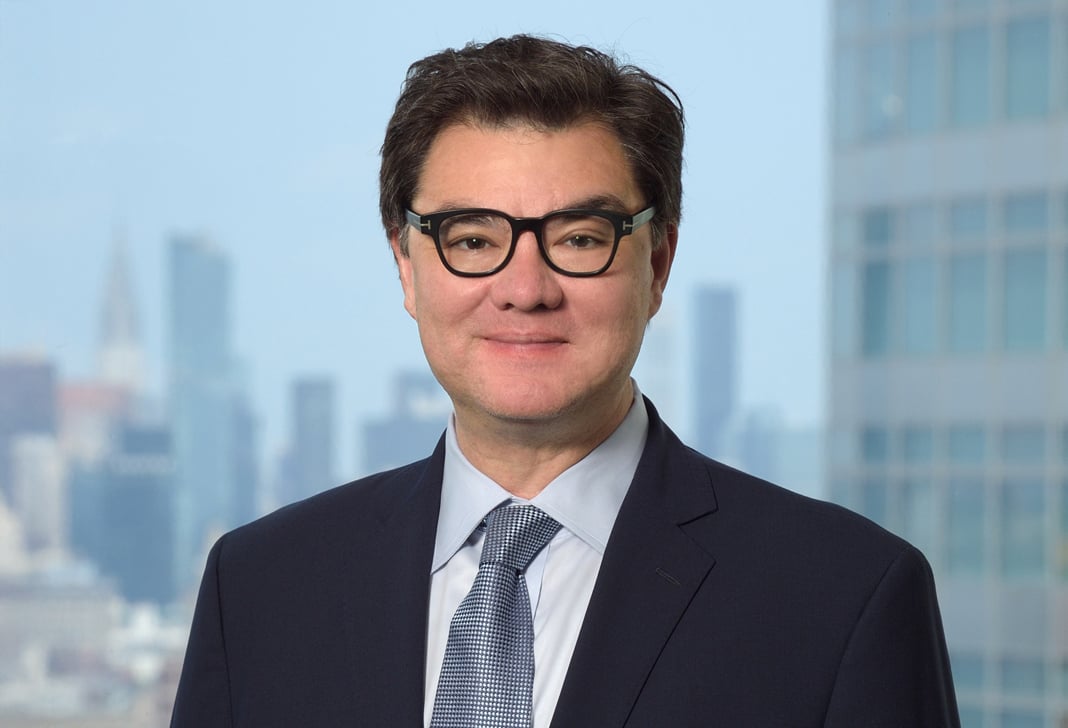
Delaware Bankruptcy Court Rules That Lenders Are Free to Enforce Contract Rights and "Negotiate Hard" Against Distressed Borrowers at Arm’s Length
When lenders take an aggressive approach to a financially troubled borrower that ultimately files for bankruptcy protection, stakeholders in the case, including chapter 11 debtors, trustees, committees, and even individual creditors or shareholders, frequently pursue causes of action against the lenders in an effort to augment or create recoveries. The incidence of lender-liability type claims in bankruptcy in the guise of litigation seeking, among other things, to equitably subordinate lender claims or to recharacterize such claims as equity has led some lenders to second-guess how aggressively they can enforce their rights under a loan agreement, including the extent to which they can take an active role in the affairs of a borrower.
For this reason, a ruling recently handed down by the U.S. Bankruptcy Court for the District of Delaware has been welcomed by lenders. In In re Hercules Offshore, Inc., 2016 BL 366002 (Bankr. D. Del. Nov. 1, 2016), the court overruled the objections of a committee of equity security holders to a chapter 11 plan that included releases of prepetition lenders, including a hedge fund which acquired 40 percent of secured debt refinanced as part of a previous chapter 11 filing. In rejecting the committee’s argument that the releases were inappropriate due to colorable claims against the lenders for misconduct in enforcing their rights under a prepetition credit agreement, the court summarized the dispute as follows:
"Will you walk into my parlor?" said the spider to the fly;
" ’Tis the prettiest little parlor that ever you did spy.
The way into my parlor is up a winding stair,
And I have many pretty things to show when you are there."
"O no, no," said the little fly, "To ask me is in vain,
For who goes up your winding stair can ne’er come down again"
[quoting The Spider and The Fly: A Fable, Mary Howitt].
To put it into terms employed by the Equity Committee, the central dispute for determination by the Court is whether the lender (spider) here "conjured up immaterial defaults," catching the (sufficiently unwary) Debtor "completely off guard" to "impose their will on" the Debtor, undermine its "recently confirmed plan and raid the Company’s coffers to force an expedited repayment" . . . (and a premature liquidation).
Hercules Offshore
Hercules Offshore, Inc., and its affiliates (collectively, "Hercules") perform offshore drilling services, both domestically in the Gulf of Mexico and internationally. In August 2015, Hercules filed a pre-packaged chapter 11 case in the District of Delaware. The bankruptcy court confirmed a chapter 11 plan for Hercules in September 2015, pursuant to which $1.2 billion in debt was exchanged for 20 million shares of new common stock. Among other things, the plan provided Hercules with access to new liquidity in the form of $450 million in exit financing under a November 6, 2015, first-lien credit agreement. The first-lien lenders included Luminus Energy Partners Master Fund, Ltd. ("Luminus"), a Bermuda-based hedge fund. At the time Hercules emerged from its 2015 chapter 11 case, Luminus held approximately 1.2 percent of the debt outstanding under the first-lien credit agreement.
Due to a significant post-confirmation decrease in oil prices and revenue, a special committee of Hercules’ board was created in January 2016 to pursue strategic alternatives available to the company, including a sale of assets, a sale of the company as a whole, and the issuance of additional equity or debt securities. The special committee initiated a marketing process and solicited bids for Hercules’ assets or the company as a whole.
From December 2015 through April 2016, Luminus expressed concerns to the special committee that Hercules was experiencing unsustainable cash burn, would likely default on various covenants under the first-lien credit agreement in 2017, and should take steps to de-risk various projects by seeking project financing or a joint venture relationship. Luminus also proposed to purchase Hercules’ assets in an out-of-court sale transaction due to the "disappointing" results of the special committee’s efforts to market the assets to other buyers.
On April 15, 2016, Luminus provided a proposal to the special committee for a controlled chapter 11 bankruptcy in which Hercules’ various assets could be sold off individually and holders of the company’s common stock would receive $27.5 million in "cash or highly certain value." However, the committee viewed this proposal not as final, but as subject to due diligence.
Hercules allegedly defaulted on certain covenants in the first-lien credit agreement in April 2016. Nevertheless, the first-lien lenders agreed not to accelerate the debt in accordance with the terms of a series of forbearance agreements.
During the forbearance period, the special committee proposed to sell various Hercules assets, including rights in a North Sea jack-up rig that Hercules had intended to purchase outright as a new source of revenue. The first-lien lenders claimed that the transfer of such rights constituted an event of default under the first-lien credit agreement and accelerated the debt. Pursuant to the terms of the forbearance agreements, escrowed funds in the amount of $200 million that had been earmarked for the jack-up rig purchase were then released to the first-lien lenders to reduce their claims under the credit agreement.
On May 26, 2016, holders of 99 percent of the first-lien debt entered into a restructuring support agreement that was unanimously approved by Hercules’ board of directors. The agreement contemplated that Hercules’ operations would be wound down in a second pre-packaged chapter 11 case.
Hercules filed for chapter 11 protection in the District of Delaware for the second time on June 5, 2016. Luminus then (or shortly afterward) held approximately 40 percent of the debt outstanding under the first-lien credit agreement as well as 914,992 shares (4.5 percent) of Hercules’ common stock.
Hercules’ pre-packaged chapter 11 plan provided for the liquidation of its assets pursuant to a series of sales. The sale proceeds were to be used to pay unsecured claims in full ($35 million) and, at the low end of the estimated proceeds, $388 million of the $579 million in allowed first-lien lender claims. In addition, if the holders of Hercules’ common stock voted in favor of the plan, they would receive $12.5 million in cash on the effective date and certain additional amounts depending on the aggregate proceeds of the asset sales. The first-lien lender and unsecured creditor classes voted to accept the plan. The class containing holders of common stock voted to reject it.
After mediation requested by Hercules failed to produce a global settlement, Hercules proposed an amended plan providing for, among other things, an increased guaranteed recovery to consenting common stock holders. An official committee of Hercules’ equity holders objected to the amended plan. The committee argued, among other things, that releases of the estate’s claims against the first-lien lenders were impermissible.
According to the equity committee, the plan releases were invalid because the estate had colorable claims and causes of action against the first-lien lenders, including claims for equitable subordination, equitable disallowance, and breach of the implied covenant of good faith and fair dealing.
The Bankruptcy Court’s Ruling
Bankruptcy judge Kevin J. Carey ruled that a claim for equitable subordination of the first-lien lenders’ claims to Hercules’ common stock failed as a matter of law because the U.S. Court of Appeals for the Third Circuit "has held that Bankruptcy Code section 510(c) does not permit creditors’ claims to be equitably subordinated to equity interests" (citing In re Winstar Commc’ns, Inc., 554 F.3d 382, 414 (3d Cir. 2009)).
Moreover, Judge Carey ruled that "equitable disallowance . . . is not typically recognized by bankruptcy courts" (citing Sher v. JP Morgan Chase Funding Inc. (In re TMST, Inc.), 518 B.R. 329, 357 (Bankr. D. Md. 2014), vacated in part on other grounds, 2014 BL 324561 (Bankr. D. Md. Nov. 13, 2014); In re LightSquared Inc., 504 B.R. 321, 339 (Bankr. S.D.N.Y. 2013)). He explained that the exceptions to the allowance of a claim are specifically delineated in section 502(b) of the Bankruptcy Code, "and a creditors’ conduct—whether or not it was in good faith—is not within this list of exceptions." In addition, Judge Carey noted that "the record here does not support such a claim."
The equity committee claimed that the first-lien lenders had breached the implied covenant of good faith and fair dealing by asserting "baseless" events of default under the first-lien credit agreement, by declining to extend the deadline for compliance with certain covenants in the credit agreement, and by forcing Hercules to enter into the forbearance agreements.
Judge Carey rejected these arguments. He explained that Hercules did not dispute that it had breached covenants under the first-lien credit agreement. The judge wrote that although the equity committee characterized such defaults as "immaterial, . . . there is no ‘materiality’ requirement in the [credit agreement] . . . [, which states] that any failure to satisfy the [relevant requirements] is grounds for acceleration of the loan" (emphasis added).
Similarly, the judge emphasized, withholding consent to an extension of time for Hercules to comply with covenants "was arguably unfortunate, but not inappropriate."
The equity committee also argued that, by claiming Hercules was in default, the first-lien lenders had forced Hercules to enter into the forbearance agreements, thereby preventing the company from accessing escrowed funds which would have allowed it to purchase the North Sea jack-up rig—an important additional source of revenue that might have kept the company out of bankruptcy.
Judge Carey rejected this argument as well. According to him, although the first-lien lenders "were strategic in their actions, lenders are free to enforce contract rights and negotiate hard against borrowers at [arm’s length], particularly those that are in distress, as here."
Judge Carey noted that Hercules characterized the first-lien lenders, "sardonically, as ‘aggressive,’ ‘vocal,’ ‘persistent,’ and at times ‘annoying.’ " However, he wrote that "there is no evidence that they acted unlawfully and no evidence that [Hercules was] damaged by any alleged lender misconduct." Evidence was lacking, he explained, that the first-lien lenders had interfered with Hercules’ business or had somehow been implicitly bound to grant extensions of time to satisfy covenants. Nor was any evidence introduced to establish that the lenders had caused or contributed to Hercules’ inability to timely satisfy covenants. Instead, the record showed that the first-lien lenders "acted within the boundaries of their contractual rights."
Finally, Judge Carey noted that the first-lien lenders had agreed to provide substantial consideration in exchange for the plan releases, including guaranteed payments to unsecured creditors and equity holders from the proceeds of their collateral. He therefore approved the releases, observing that they "bring needed certainty to [Hercules’] exit from chapter 11."



